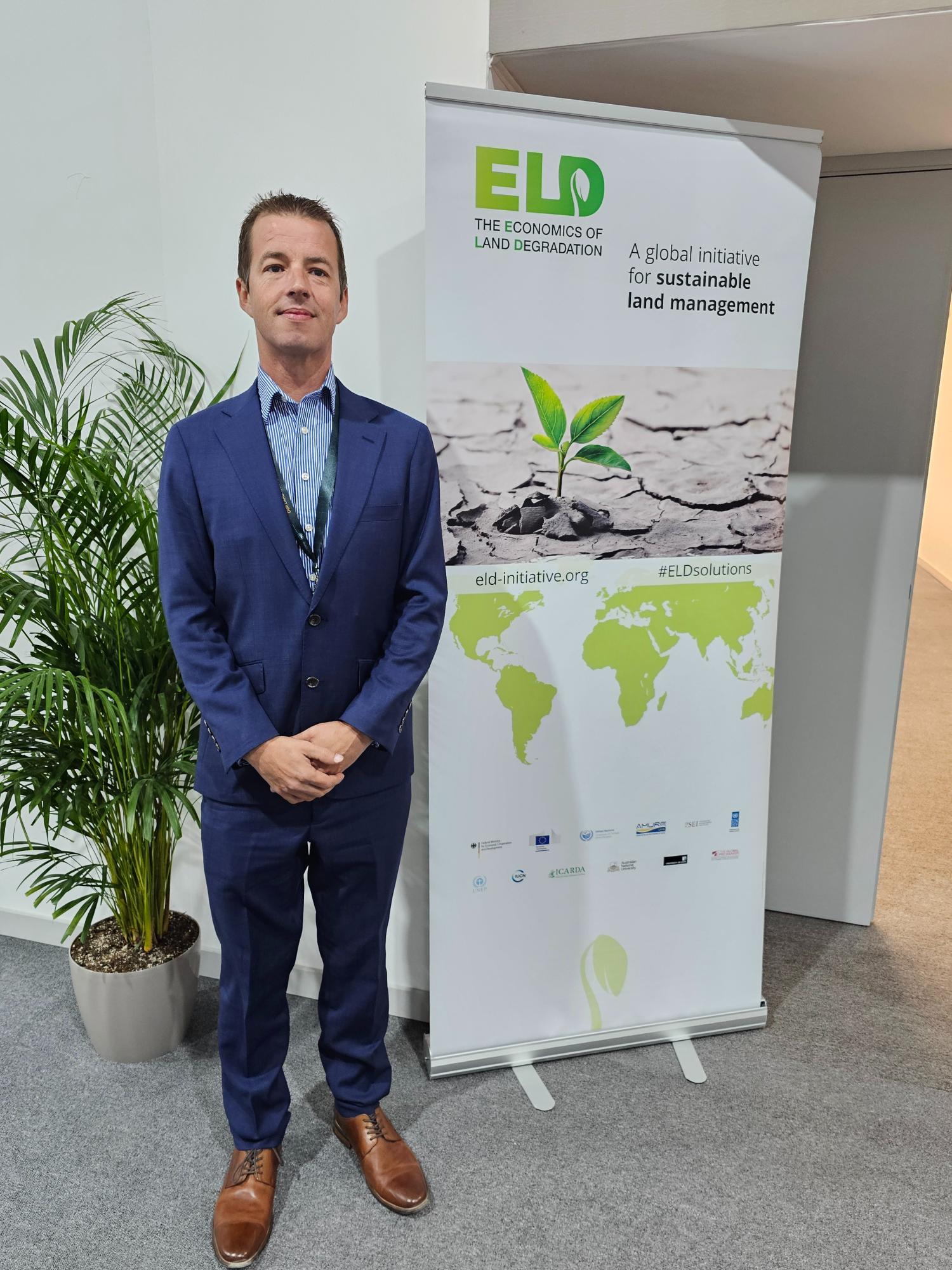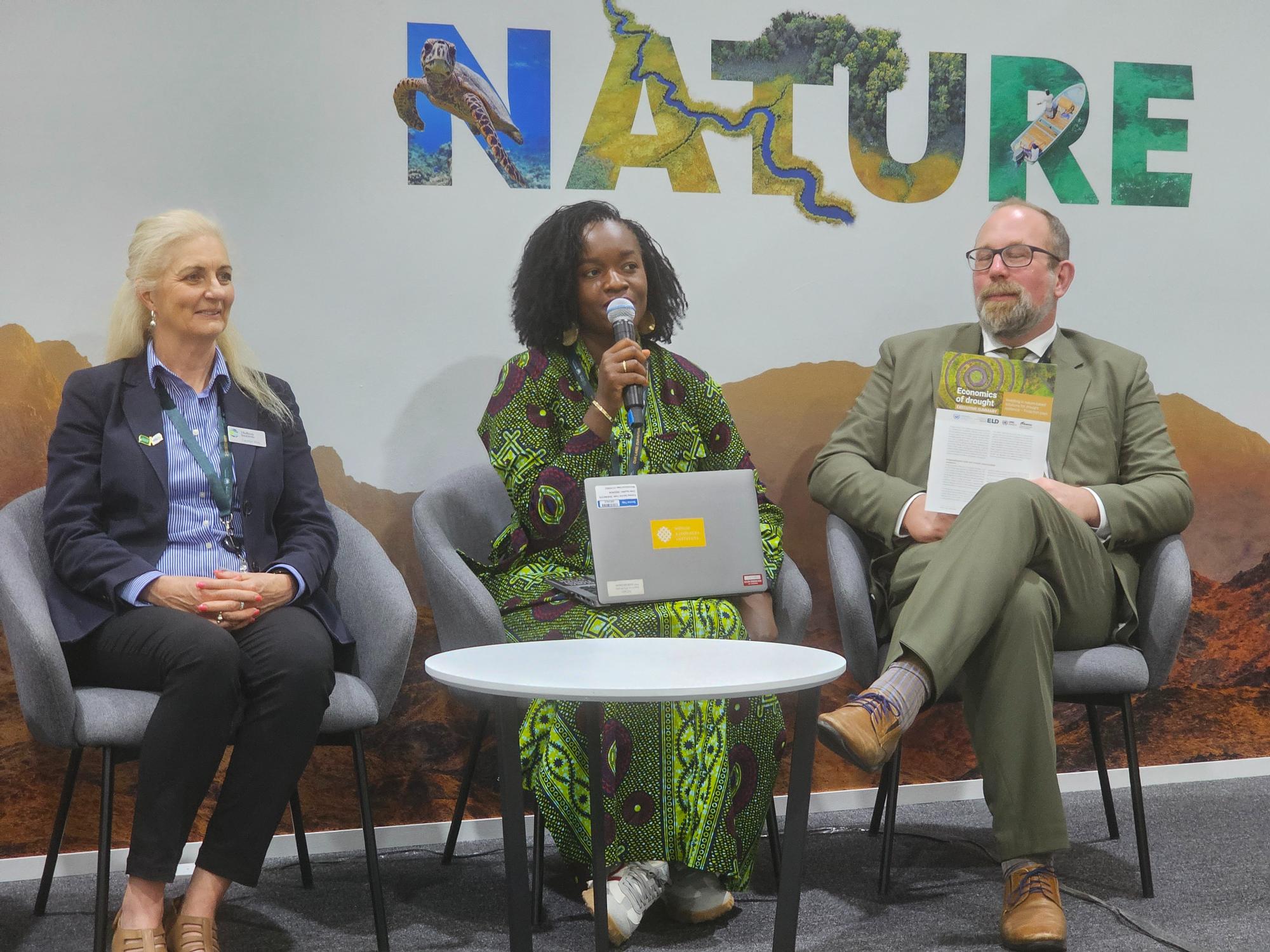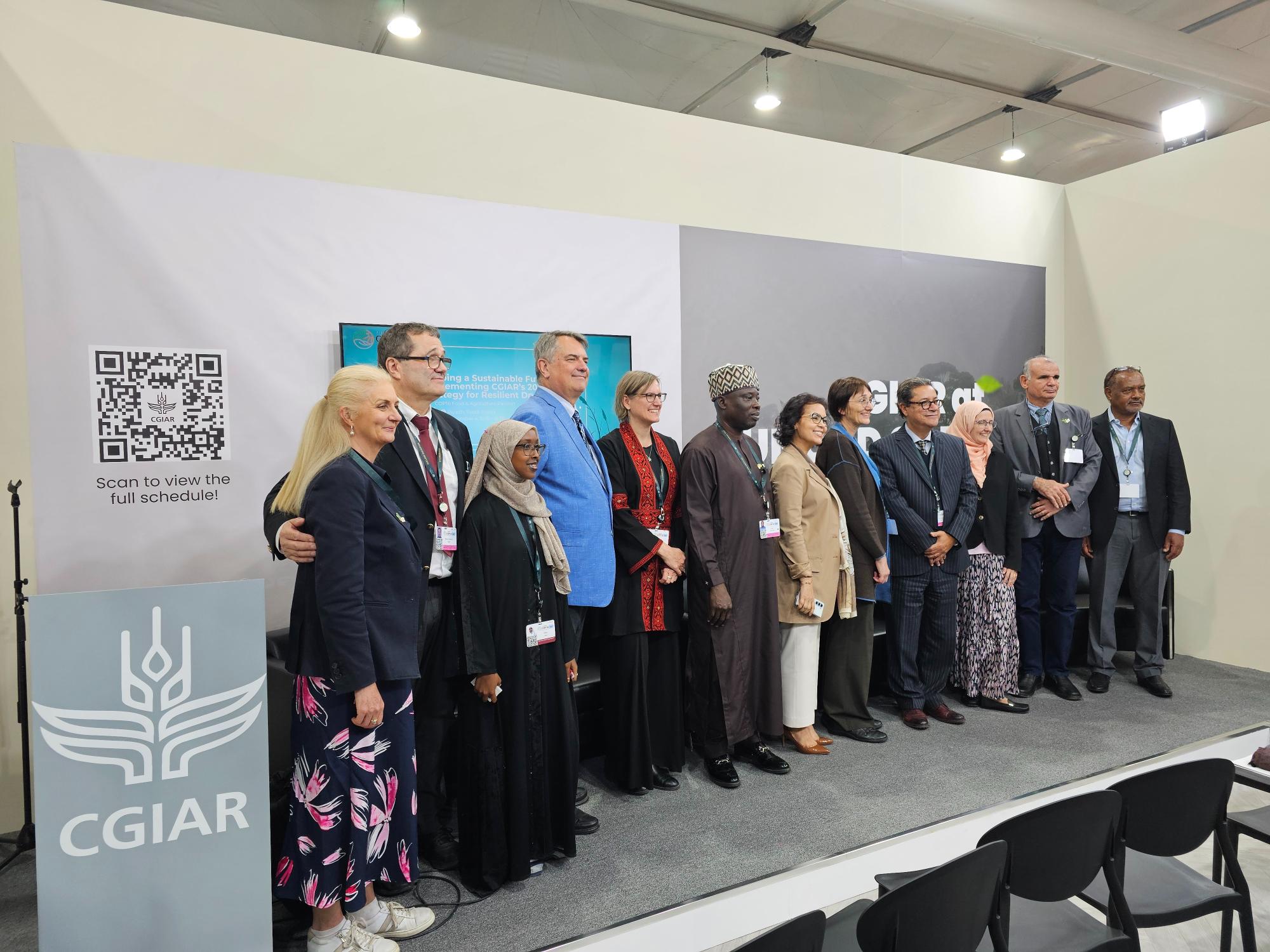Carolyn Hall’s overview of the COP16 Panel Presentations
The experience at COP 16 Riyadh became richer as following our case study presentation on the Economics of Drought Report, I was asked to be part of a further four panels discussing landscape rehydration and restoration and the work we are doing to assist Australian Farmers and First Nations to hold water in the landscape and heal Country.
Thank you to Nina Bisom then Leader of the ELD Initiative and Mark Schauer Senior Advisor to the ELD Initiative for inviting me to join the IUCN panel Mobilising Nature Based Solutions Private and Public Financing to Save our Lands. Thank you also to Charles KARANGWA, MBA IUCN Global Head of Nature Based Solutions for inviting me onto the panel.


